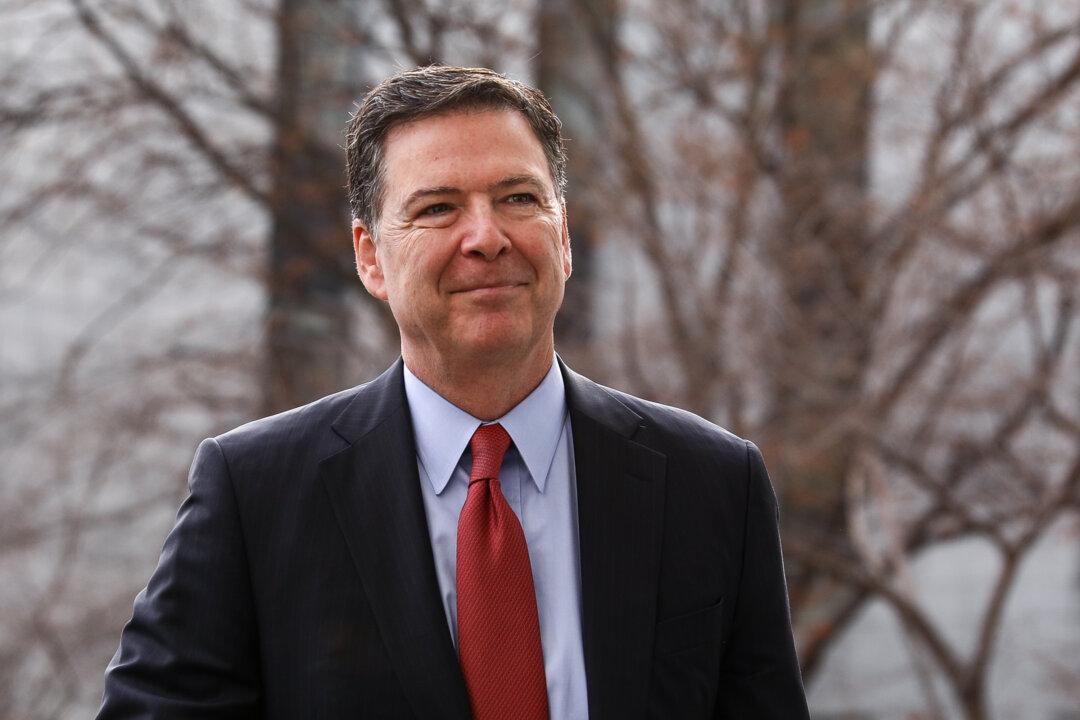WASHINGTON—Then-FBI Director James Comey and other bureau leaders were “fired up” in 2016 about allegations that Donald Trump’s business was secretly communicating with a Russian bank, according to internal FBI messages revealed in court on May 23.
“People on the 7th floor to include director are fired up about this server,” Joseph Pientka, an agent based in Washington, told Curtis Heide, a colleague working from the bureau’s Chicago office, in a message dated Sept. 21, 2016.






